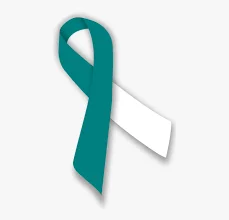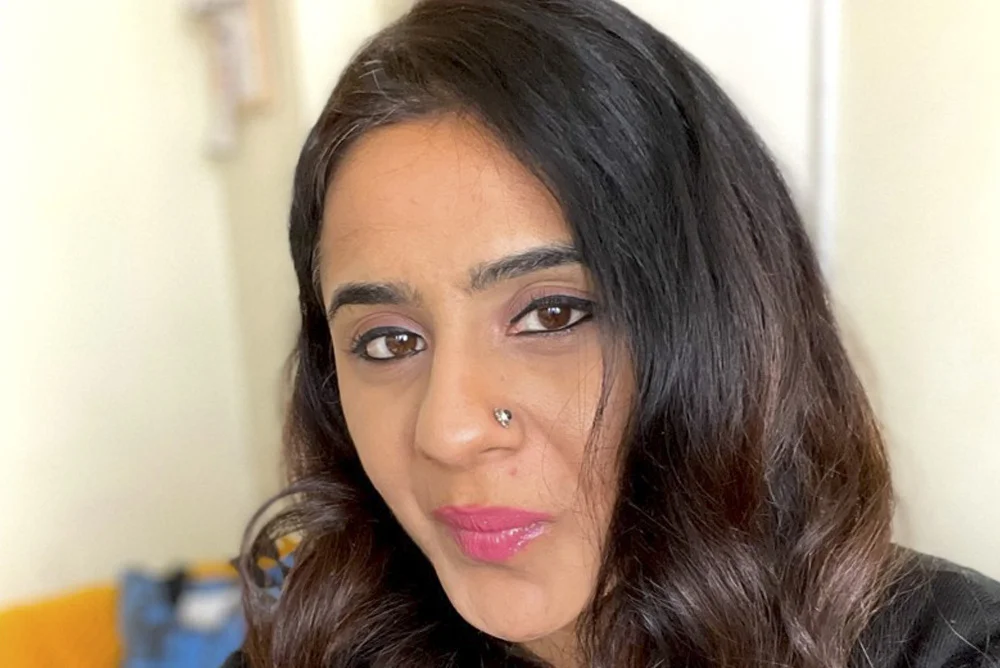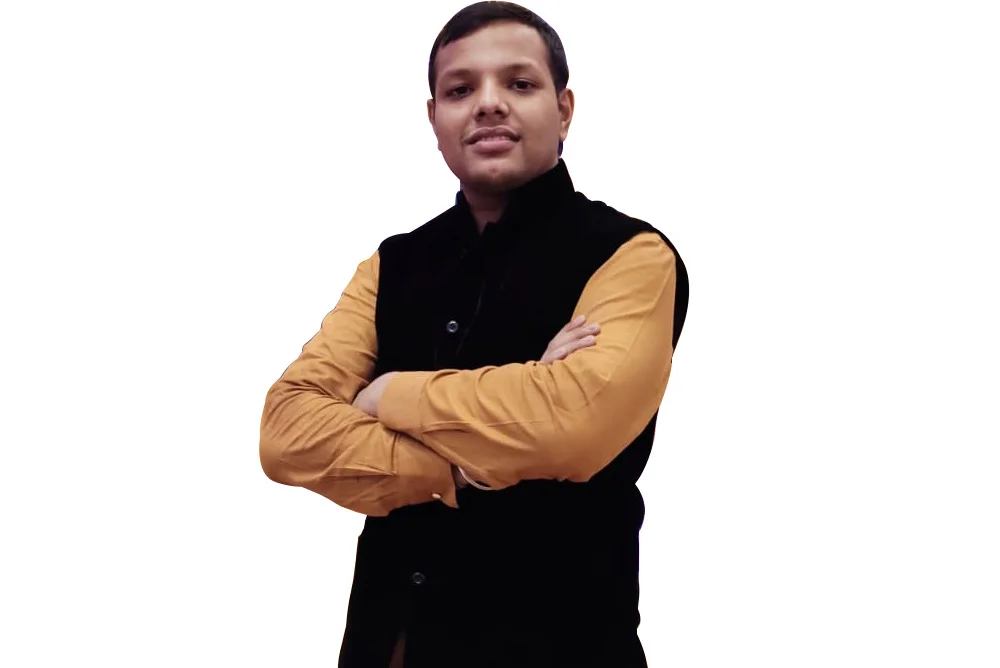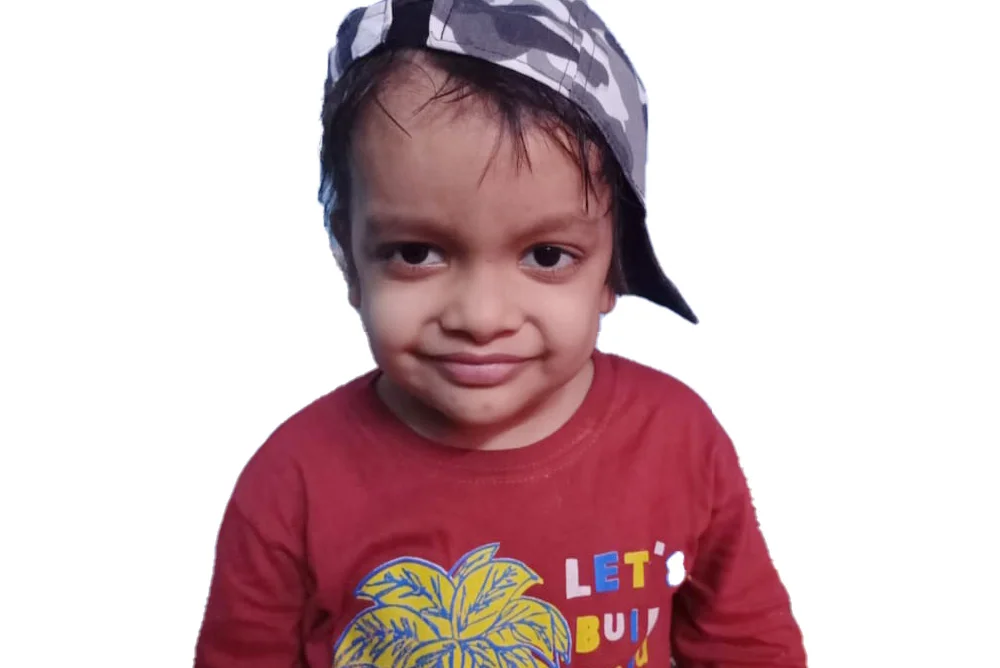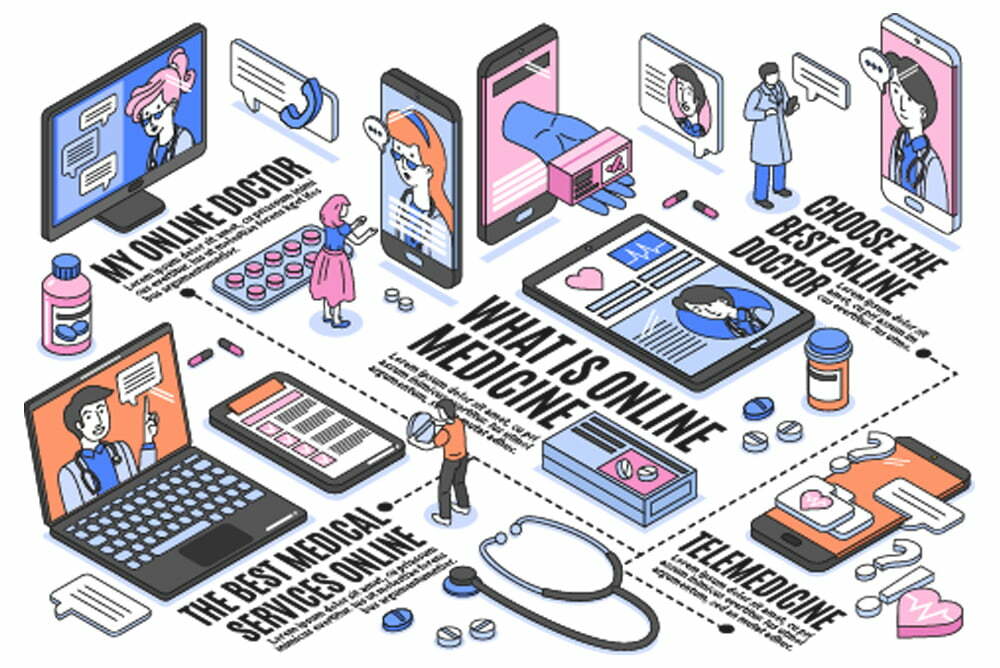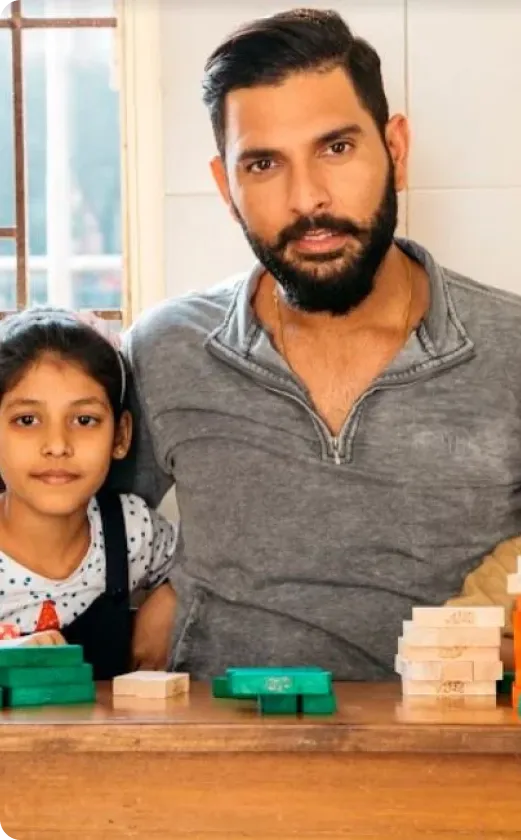

DEFEATING CANCER WITH HUMOUR
POSTED ON 18 January, 2022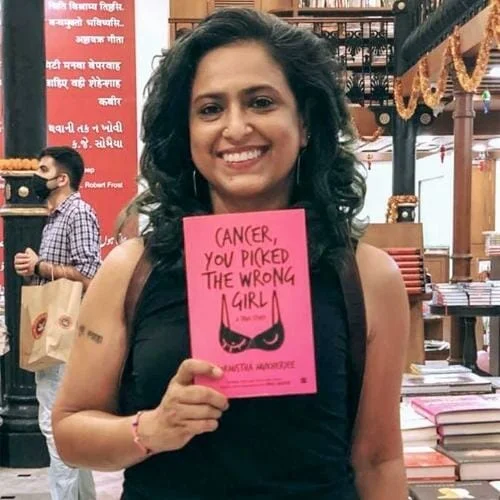
Mrs. Poonam Nanda in conversation with Shormishtha Mukherjee, author of Cancer, you picked the wrong girl and proud Cancer survivor.
Q1. Please tell us something about yourself.
- Hello, I am Shormishtha Mukherjee, I live in Bandra, Mumbai and I am the co-founder of a digital advertising agency. My father was in the air force, which gave me the opportunity to travel across the country. I studied in 14 schools within 12 years, and my career took me from Calcutta to Delhi and then Mumbai. Now in Mumbai, I feel like I’m home! I absolutely love to cycle, and indulging in this hobby has been a super destressing activity for me. Everyone should try it out. Another thing I love doing is taking quizzes on history and heritage. I believe that our rich culture hasn’t been taught in the most effective way to us at a younger age, and quizzes have been a great way to sharpen these learnings! I have also taken a few classes on drawing and painting. So I find my hobbies to be limitless.
Q2. Tell me a little bit about your journey. When were you diagnosed with cancer, and how did you find out?
- It all started when I found a lump in my breast. Initially, I ignored it. Upon being examined by my gynecologist, she suggested I go through a brief checkup. This is when I was detected with early-stage breast cancer. I said to myself, “No, I have to live”. A cancer diagnosis makes you as psychologically affected, as it does take a toll on your body. Cancer, when detected early, is curable in some cases without chemotherapy and less radiation, but the consequences of being detected late are not reassuring. I felt that despite being aware, educated and secure, I ignored a symptom. We need to come out of this taboo as soon as we can.
-
Q3. How and why did you think of writing a book on your experience with cancer?
- To be honest, I never thought of writing a book. I used to share my experiences on my social media platforms which garnered attention. I started receiving calls for sharing my excerpts, which I happily agreed to. But, I also had a clear intention of sharing my story. I suffered, and I experienced how difficult it can be for a person going through this. I used to search for books that would help me in that stage of my life, and so I wanted to be the voice when someone else might need it in the future. When approached by some publishers, I agreed to pen down my journey upon my recovery. I wrote the book with full honesty, without hiding the facts, and the response I’ve gotten has been overwhelming.
-
Q4. How did you manage to see the funny side of things even in this grim phase of your life?
- This is a good question to answer. People here are so superstitious, that they feel like speaking or reading about cancer will attract it. People called me and said, “Your book’s response is awesome, but I am fearful of reading it.” Someone even promised to read it after the festivities! I have observed a hilarious roller-coaster of feedback, and I find this to be the reason that makes me smile. Even during my treatment, getting a glimpse of shirtless Shahd Kapoor through my hospital window, sharing a good laugh with my medical team, was another instance of light-heartedness that helped me get through my situation.
-
Q5. As a survivor, how has cancer changed you?
- There have been a lot of changes in my life and I feel I have also changed as an individual. Earlier I used to be a workaholic and trusted no one with my work or tried to be a perfectionist more than cent percent. But now I have a different approach towards life. I explore myself and have become more empathetic. I have also become more patient and stopped keeping letting things impact my mind for a long time. Both, the gift of life and our bodies – are fragile. We don’t know what’s going inside and it’s better to live it to the fullest without keeping grudges and be grateful of things planned for us.
-
Q6. What advice would you have for other people who have been recently diagnosed with cancer?
- I am not the right person to give advice as there are many stages and types of cancer. So it depends upon the diagnosis and the treatment plan one goes through. However, I would highly suggest regular screenings and examinations if any symptoms are found. It is better to know the whole picture than to subscribe to ignorance – as in this case, ignorance is life-threatening. We need to value our life, have a look at our lifestyle. Earlier, commonly – women above 60 were diagnosed but slowly the age bracket went down to the 40s and now one can find a woman in her early 30s, diagnosed with cancer. Keeping a positive approach and a sense to fight would surely help one battling this disease.
